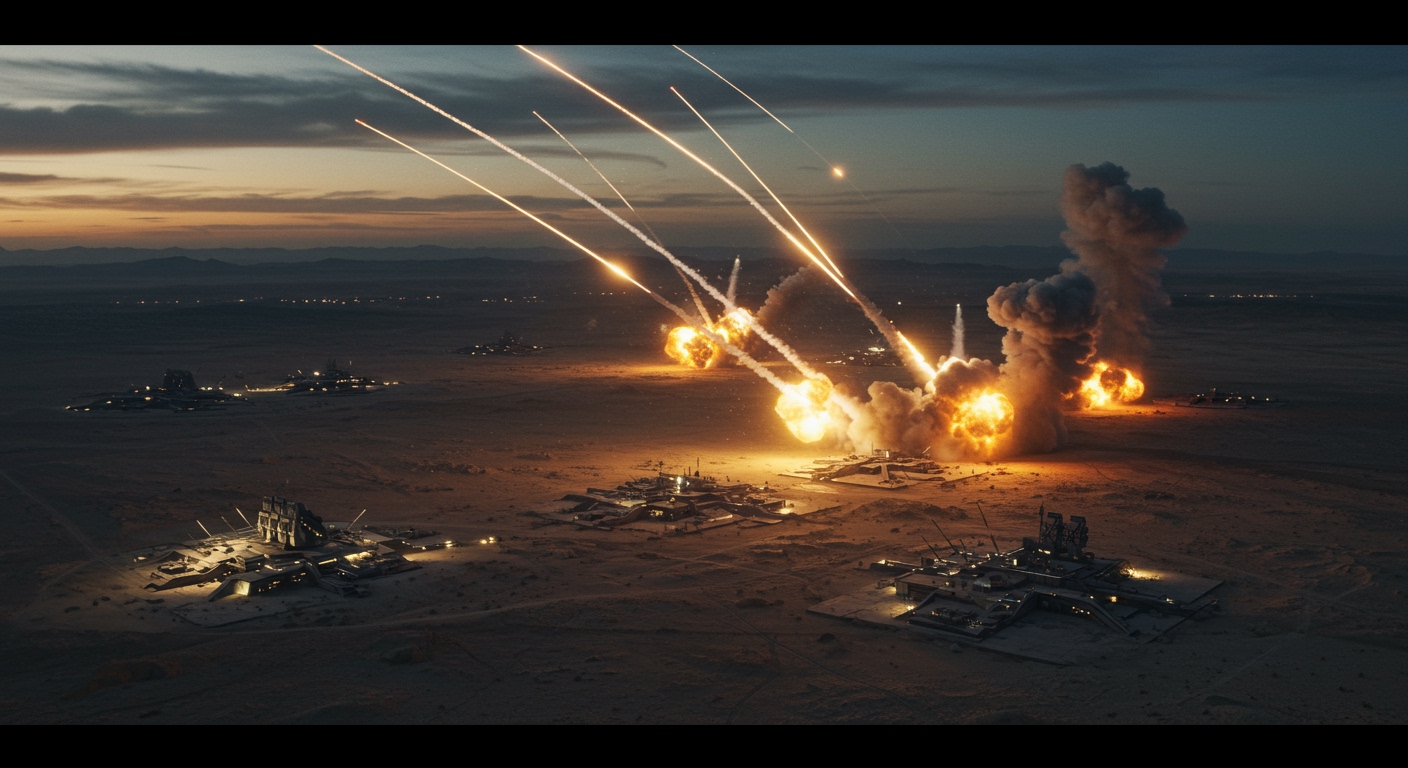A significant divergence has emerged between the Trump administration’s portrayal of the impact of U.S. air strikes on Iran and the findings of the nation’s defense intelligence apparatus. A classified report compiled by the Defense Intelligence Agency (DIA) reportedly concludes that the American military actions did not achieve the comprehensive destruction of Iran’s deeply buried nuclear facilities, directly contradicting claims of “total obliteration” previously advanced by the White House.
Sources with direct familiarity with the classified DIA assessment indicate that the Pentagon’s analysis suggests the strikes merely delayed Iran’s nuclear program, estimating the setback in terms of months rather than a complete collapse or irreversible dismantling. This assessment presents a stark contrast to the more decisive outcome described by some administration officials following the strikes.
White House Rejection of DIA Findings
Both President Trump and Secretary of State Marco Rubio have publicly rejected the DIA’s findings. Their stance underscores a potential tension between the administration’s public narrative regarding the effectiveness of its military actions and the intelligence community’s internal assessments.
The specifics of the DIA report that have been disclosed paint a picture of resilience within Iran’s nuclear infrastructure, particularly concerning facilities that are protected by significant underground construction. The report, according to sources, suggests that while the strikes may have inflicted some damage or disruption, they were insufficient to neutralize the program entirely or for an extended duration.
Cancellation of Congressional Briefings Draws Bipartisan Criticism
Adding another layer of complexity to the situation, the Trump administration on Tuesday canceled scheduled Congressional briefings intended to provide lawmakers with details regarding the attack on Iran. This move drew swift criticism from members of both major political parties.
Legislators from across the political spectrum voiced concerns over the lack of transparency and the administration’s decision to withhold information about the military engagement and its assessed outcomes. Among the critics was Illinois Democrat Mike Quigley, who, along with other Republicans and Democrats, highlighted the importance of congressional oversight in matters of national security and military action.
Implications of the Discrepancy
Disagreements between political leadership and intelligence agencies over the efficacy of military operations are not unprecedented, but the public nature of the rejection by senior officials and the reported specifics of the DIA assessment bring this particular instance into sharp focus. The discrepancy raises questions about the basis for the administration’s claims of “total obliteration” and the potential implications for future policy decisions regarding Iran’s nuclear ambitions.
The cancellation of the briefings further fueled concerns among lawmakers about being kept informed on critical foreign policy and defense matters. Congressional oversight is viewed by many on Capitol Hill as essential for ensuring accountability and informed decision-making, particularly when military force is employed.
The Path Forward
The conflicting assessments and the curtailment of formal communication channels with Congress complicate the narrative surrounding the strikes and their long-term impact. As policymakers evaluate the effectiveness of past actions and consider future strategies regarding Iran, the differing views from within the government itself – between the White House and the Pentagon’s intelligence arm – will likely remain a central point of debate.
The situation highlights the challenges inherent in assessing the success of military strikes against deeply embedded targets and the critical role that accurate, unchallenged intelligence plays in shaping public understanding and informing governmental strategy. The coming weeks may see continued pressure on the administration to reconcile its public statements with intelligence assessments and to engage more fully with Congressional leaders on these sensitive national security issues.















